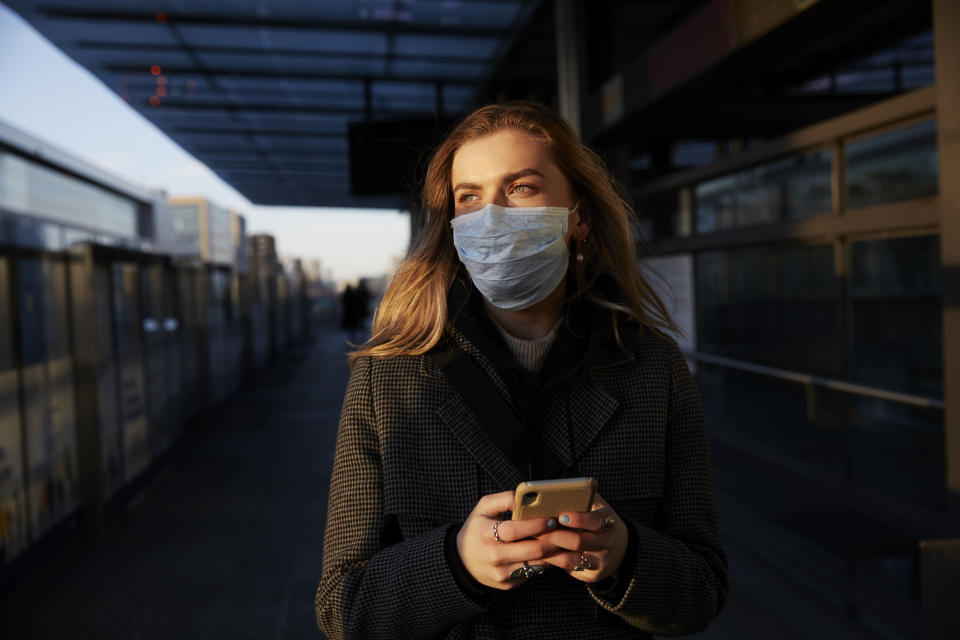Why are days going quickly in lockdown?

They say time flies when you’re having fun.
With the UK on lockdown since 23 March – and just marginal easing – socialising, dates and holidays have long been off the cards.
While you may have expected time to drag, some have noticed the days quickly turn into weeks and the weeks into months.

Coronavirus: Why are days going so quickly in lockdown?
While no one could have imagined a national lockdown at the start of 2020, many are struggling to remember life before it.
“Every day seems to be merging into one, with little distinction between weekdays and weekends for many people,” Dr Meg Arroll, chartered psychologist for Healthspan, told Yahoo UK.
“This lack of demarcation has a profound effect on our retrospective memory as there are no mental signposts (i.e. notable memories) to tell us how much time has passed.
“So, it may seem like time is passing more quickly during lockdown as monotony is its characteristic feature.”
A week-long holiday can zoom by because you are having lots of new experiences every day.
Once home, however, it may feel like you were away for much longer than seven days.
Liz Ritchie, psychotherapist at St Andrew’s Healthcare, told Yahoo UK: “We are no longer prisoners of the tyrannical clock, we have no real markers of time, we have become much more restricted dealing with weeks of potential boredom and confinement in our homes, but ironically we are looking back at this time in isolation as having gone surprisingly quickly.
“The monotonous day-to-day pattern of life is likely to have something to do with this.”
While lockdown may have been less arduous than expected, most are eagerly awaiting some form of normality.
“When our minds are focused on the future, it’s not possible to take in enough present information in order to form assimilated memories,” said Dr Arroll.
“Have you ever been on a drive or train journey and it seems to have flown by because you’ve been thinking about an anxiety-provoking situation, such as a presentation?
“Because we have a finite mental capacity, these ruminative thought patterns prevent us noticing details such as the landscape we’re passing and as such we’re unlikely to remember it.”
While some have embraced a slower pace of life, most are having to adjust to new preoccupations.
“Our altered perception of time is perhaps further supported by the new need to navigate life in a way that requires juggling the technological challenges of working from home, embracing home-schooling and spending life entirely in one location,” said Ritchie.
Watch the latest videos from Yahoo UK Lifestyle
What is the coronavirus?
The coronavirus is one of seven strains of a virus class that are known to infect humans.
Others cause everything from the common cold to severe acute respiratory syndrome (Sars), which killed 774 people during its 2002/3 outbreak.
Since the coronavirus outbreak was identified, more than 5.7 million cases have been confirmed worldwide, according to Johns Hopkins University.
Of these cases, over 2.3 million are known to have “recovered”.
Globally, the death toll has exceeded 356,000.
The coronavirus mainly spreads face to face via infected droplets expelled in a cough or sneeze.
There is also evidence it is transmitted in faeces and can survive on surfaces.
Symptoms include fever, cough, fatigue, slight breathlessness and a loss of smell or taste.
Early research suggests the coronavirus is mild in four out of five cases, however, it can trigger a respiratory disease called COVID-19.
The coronavirus has no “set” treatment, with most patients naturally fighting off the infection.
Those requiring hospitalisation are given “supportive care”, like ventilation, while their immune system gets to work.
Officials urge people ward off infection by washing their hands regularly and maintaining social distancing.
Coronavirus: what happened today
Click here to sign up to the latest news, advice and information with our daily Catch-up newsletter
Read more about COVID-19
How to get a coronavirus test if you have symptoms
What you can and can’t do under lockdown rules
In pictures: How UK school classrooms could look in new normal
How public transport could look after lockdown
How our public spaces will change in the future
Help and advice
Read the full list of official FAQs here
10 tips from the NHS to help deal with anxiety
What to do if you think you have symptoms
How to get help if you've been furloughed


